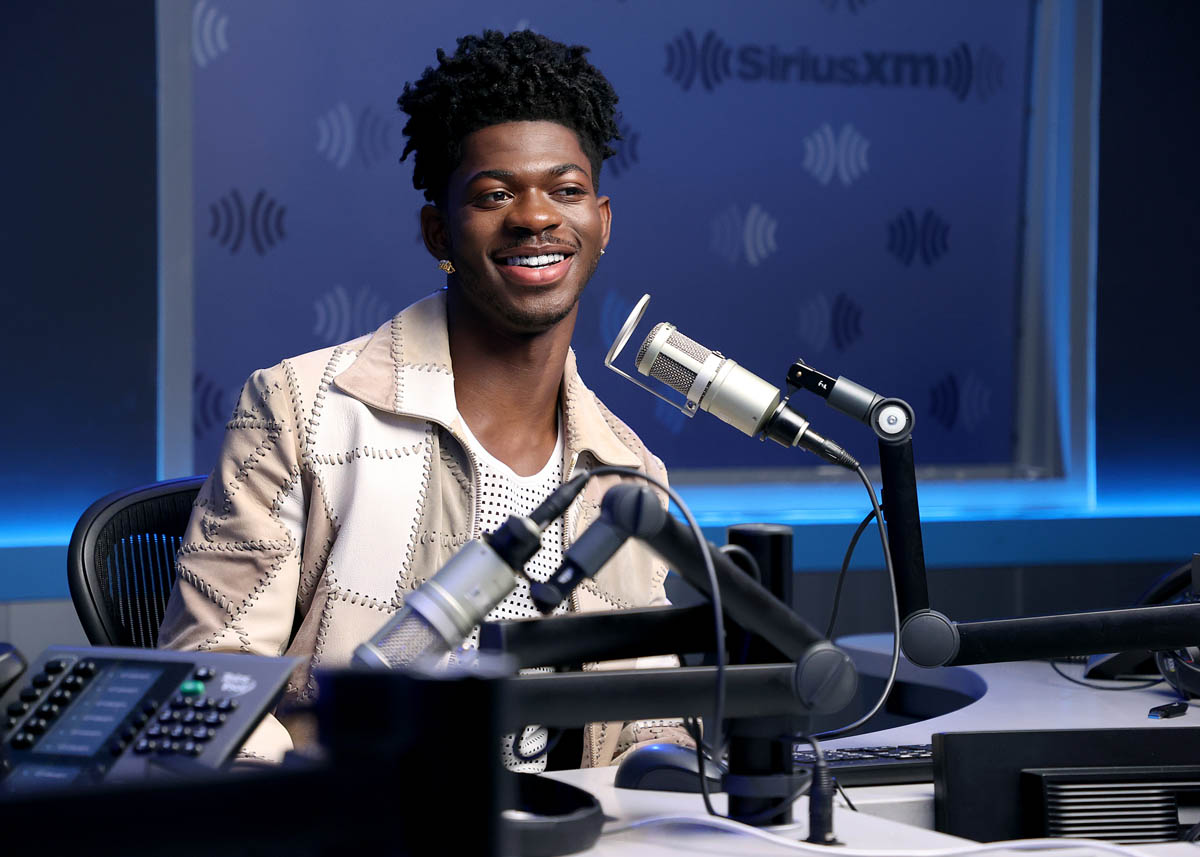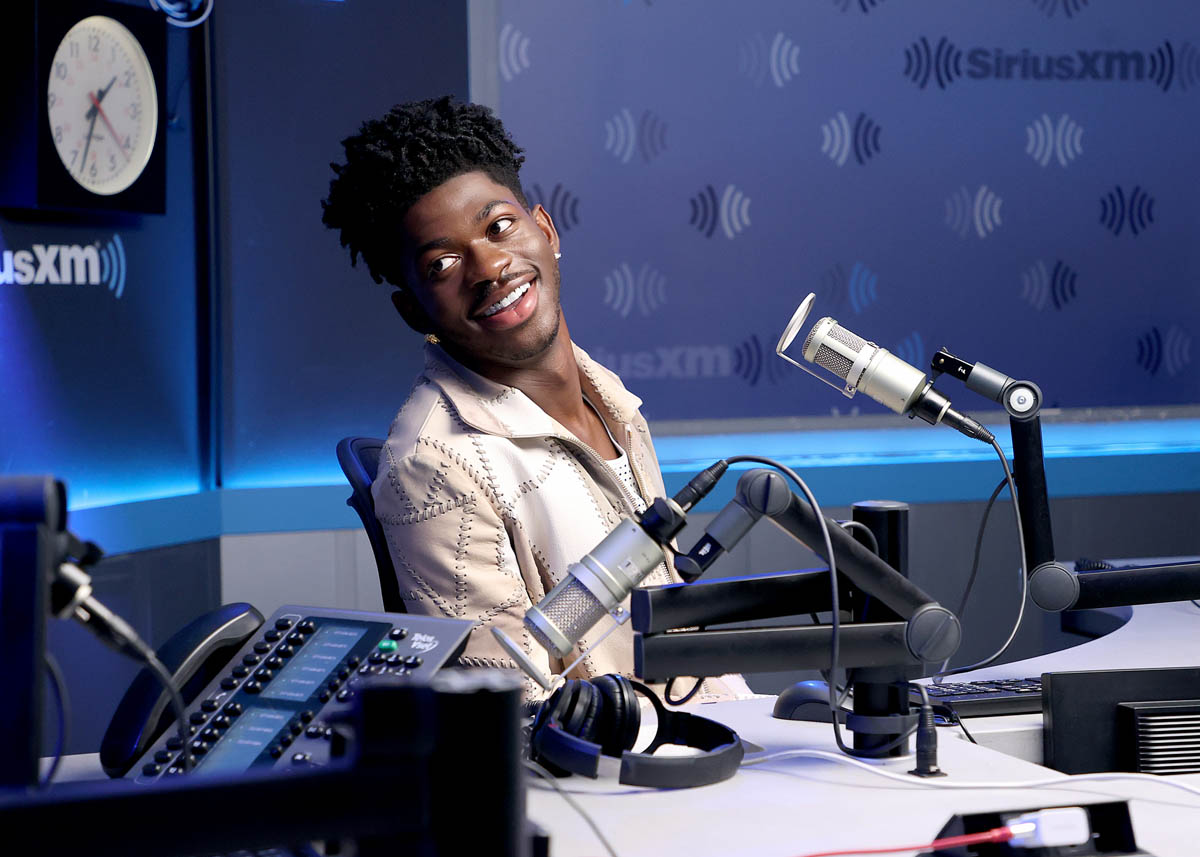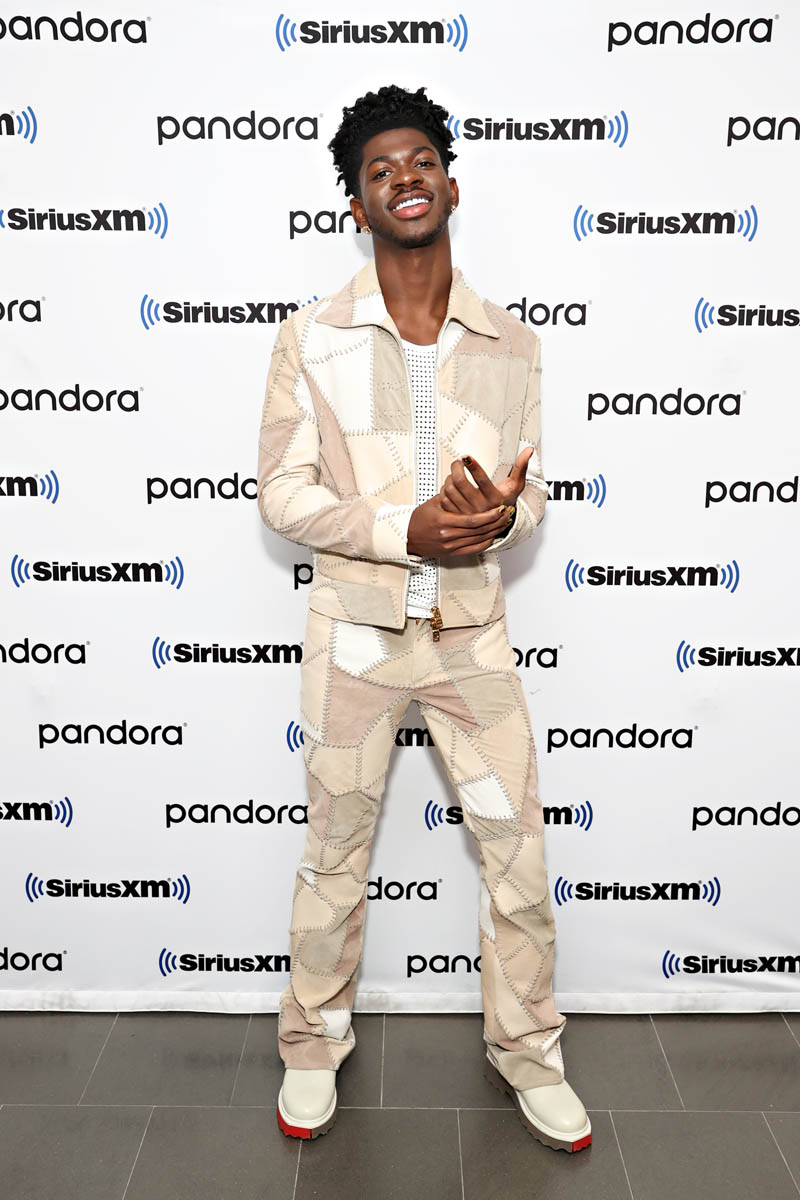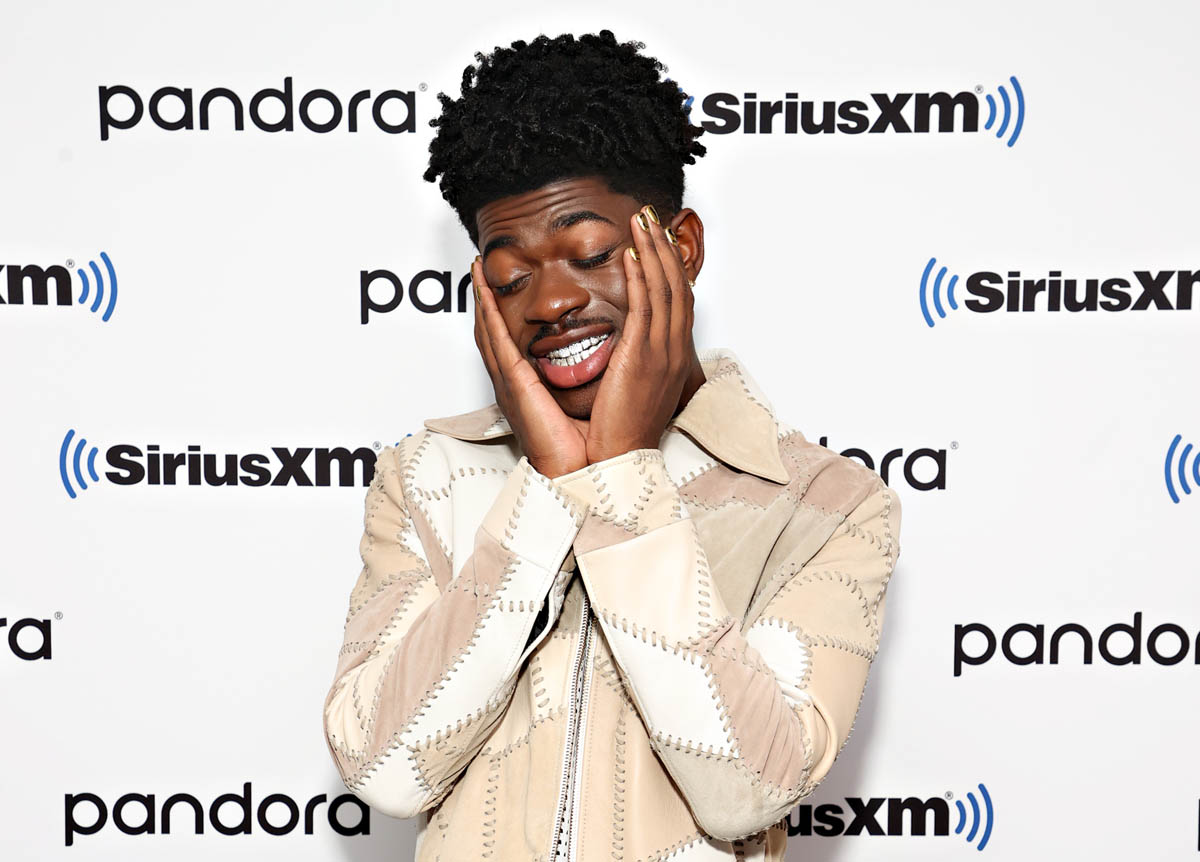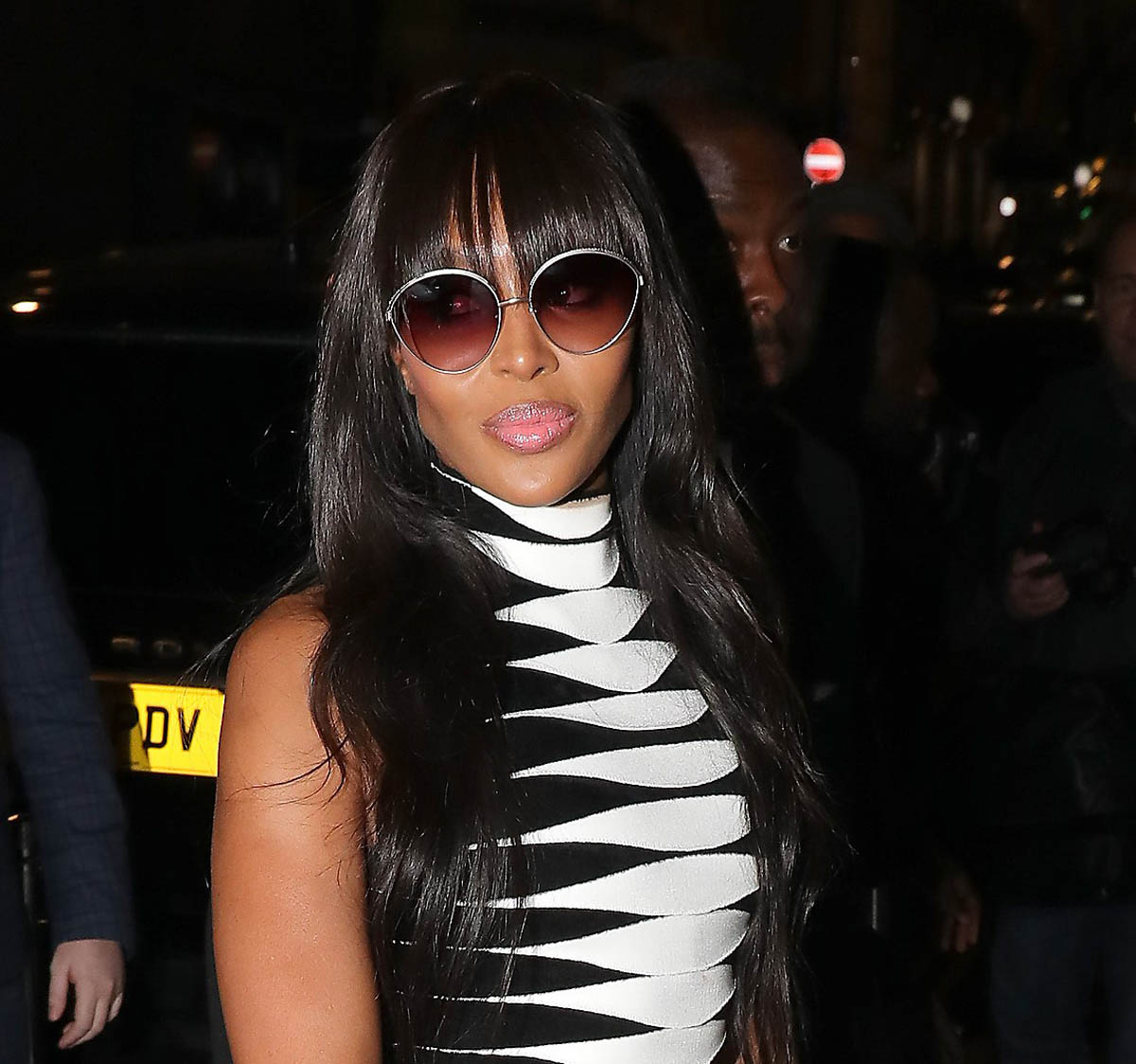Lil Nas X: Artist or Meme?


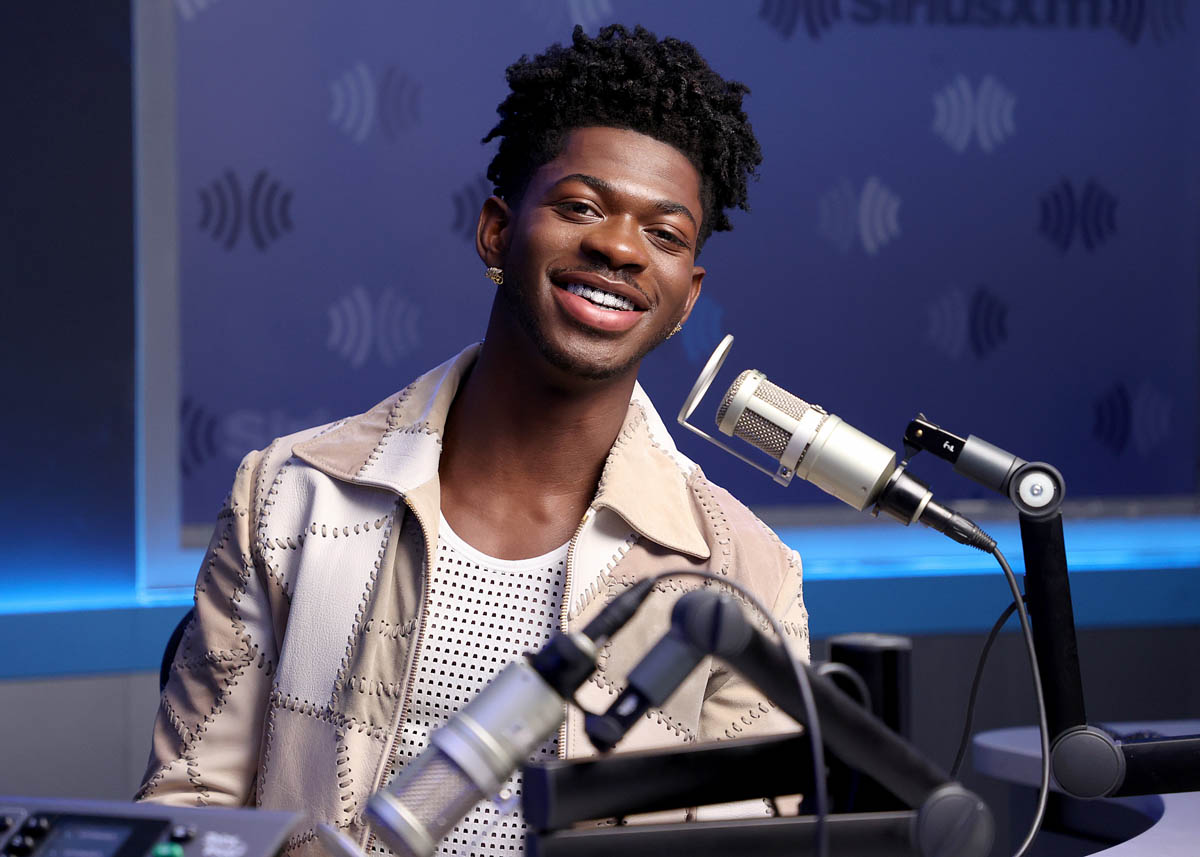
It’s no secret that I’m a big fan of Lil Nas X. With every moment he’s giving Satan a lap dance or making out with his backup dancer at the BET Awards or doing a People Magazine pregnancy photo shoot, I’ve grown to love him more and more. And with his antics he’s become a larger-than-life entertainer, making headlines for his internet trolling as much as he does for just existing as his Black queer self. But with headlines and theatrics comes pressure to prove you’re more than just a gimmick. Are you an artist or are you a meme? That’s the question he set to answer with his debut album, MONTERO, which arrived on Friday.
The first half of the album is the Lil Nas X you know, with those loud pop-rap bops like “Call Me by Your Name” and “Industry Baby” and also “Scoop”, featuring Doja Cat, where he says, “Ain’t talkin’ guns when I ask where your d—k at”. A line I love because most people only mention gay sex under the cover of metaphors and euphemisms. Lil Nas just puts it all out there which takes away the shame. The fun half of the album also includes the next single, “That’s What I Want”, which has an accompanying music video that includes the symbolic passing of the torch moment from Billy Porter and recreating scenes from Brokeback Mountain.
It’s another racy video from Nas, but I always have to check myself. Is it spicier than his contemporaries? Or do I just feel that way because seeing gay Black men getting it on screen hasn’t been normalized — even for someone like me who is rooting for more of that. The song’s all about growing tired of hooking up and yearning for someone to love. I think it’s a story a lot of young gay men can relate to. You finally find yourself and find the freedom to express your sexuality and that’s super liberating, but then you’re struggling to move romantic relationships beyond sex because you never had a blueprint growing up for what gay relationships look like. That being said, I think these days a lot of young people struggle with converting relationships to more than just casual sex.
The second half of the album is darker. This is when he really pulls back the Lil Nas X veil to show some of Montero’s vulnerability — Montero Lamar Hill is his given name. The shift starts with “One of Me”, a collab with Elton John on piano, where he reflects on the things people say to make him doubt himself, while pretending they have his best interests in mind. But ultimately, as he sings in the chorus, those people failed themselves and they want Lil Nas X to be one of them to sooth their own inadequacies and revel if he couldn’t do it either. “Sun Goes Down” is a letter to his high school self (“I know that you want to cry, but it's much more to life than dyin’”) and to the millions of queer teens who will hear this album; while “Lost in the Citadel” tackles a toxic relationship he keeps coming back to, and “Tales of Dominica” brings listeners deeper inside his childhood growing up in a broken home.
But things reach their deepest and darkest on a track appropriately called “Void”:
“See, I'm getting tired of the way I've been living
I'd rather die than to live with these feelings
Stuck in this world where there's so much to prove
Every win gives you more room to lose
It's too many ups and downs on the ride
I spent inordinate 'mounts of time
Trapped in a lonely, loner life
Looking for love where I'm denied”
It’s enough to make me cry when I listen to that song and think about the how many young people die by suicide every year, how many young queer people take their own lives. I can feel the hurt in his voice as goes to those places and I can’t help but think back to the darkest moments of my teenage years and early 20s.
But the album doesn’t end on Nas’ lowest moments, moving into reflections on his relationship with fame, longevity, and legacy. I know he’s essentially a new artist, but with everyone calling him a one-hit wonder the first couple years of his career, he must know this could all disappear tomorrow. I think that’s part of the reason he’s blazing a trail for queer artists to come up behind him. This summer he spoke to Variety about letting the world see him at his truest form:
“Honestly, I believe the pandemic helped me get out of the idea of trying to please everybody, and the idea of ‘He’s a cool gay person; he’s an acceptable gay person.’ I used to see things like that as a compliment, but it’s not. It just means you’re a people pleaser, and they never become legends. I wanted to be even more authentic in my music and let people into my life. I’m much more confident now — in my music, myself, my sexuality, the things that I believe that I stand for.”
When Nas released his EP, 7, prior to coming out, it had vague references to his sexuality that were so subtle people didn’t want to assume or they just missed it completely. Then he came out, proudly standing in his sexuality, but not yet fully confident in exactly how gay he is. This album is unabashedly GAY and it’s no coincidence that this is his best work, lyrically, musically and in terms of subject matter. The memes and the comedy and the trolling are amazing and that’s part of the reason I love Lil Nas X, but that’s not the complete picture of who he is as a person. In fact, he used to use that part of his personality hide the other parts. Now that he’s found confidence in unapologetically being his whole self, we’re getting to connect with him on a deeper level. We’re finally meeting Montero.
Attached - Lil Nas X at SiriusXM Studios last week.

